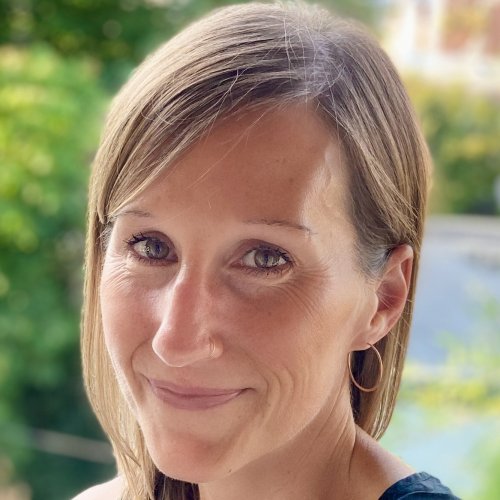
Lindsay
Young

Lindsay
Young
Tabs
Dr. Lindsay Young is an assistant professor of health communication and communication networks at USC Annenberg. Young’s research draws on the tenets of “Quantitative Criticalism” — where quantitative methods are combined with critical perspectives — to better understand and address health inequities in minoritized populations. Specifically, her work uses social network analysis and other statistical and computational methods to identify, characterize, and interrogate the socio-environmental factors that impact health and well-being, particularly in sexual and gender minority communities.
Young’s work is also driven by a praxis orientation, governed by a desire to help affected communities leverage the power of their organic networks toward improved community health. To these ends, she draws on community-oriented, asset-based models of community development and social network theories of health behavior change to design community health interventions that privilege intrinsic structures and assets.
Currently, her work is supported by an NIH Career Development Pathway to Independence Award, funded by the National Institute of Child Health and Human Development (NICHD). Her work has been published in top-tier, peer-reviewed journals across multiple research domains such as Health Communication, Health Psychology, Social Science & Medicine, AIDS and Behavior, American Journal of Public Health, Clinical Trials, and Social Networks.
Young is a co-director of the Annenberg Networks Network (ANN) and an associate director of the USC Center for AI in Society (CAIS). Prior to joining USC, Young was a postdoctoral scholar at the Chicago Center for HIV Elimination at the University of Chicago. She earned her PhD in media, technology, and society from the School of Communication at Northwestern University, her MS in science communication from Drexel University, and her BA in public communication from American University.
Awards and honors:
Top Faculty Paper Award, National Communication Association, Health Communication Division (2023)
NIH Pathway to Independence Award, National Institute of Child Health and Human Development (NICHD) (2018-2024)
Health Disparities Research Institute (HDRI) Fellow, National Institute of Minority Health and Health Disparities (2020).
Summer Institute in Computational Social Sciences (SICSS) Fellow, Duke University (2020)
NIH Summer Institute for Randomized Behavioral Clinical Trials Fellow, NIH Office of Behavioral Social Science Research (2019)
Journal Articles:
“Effects of peer exposure on condom use and sexual health communication in an online social network among Black sexual minority men,” (Health Communication, 2023).
“Social Contextual Predictors of COVID-19 Vaccine Acceptance: A Time-to-First-Dose Analysis,” co-author (Health Psychology, 2023).
“Demographic and HIV Status Diversities as Mechanisms of Social Integration and Segregation Among Black Sexual and Gender Minorities Enrolled in a Community-Based Social Network Intervention”, co-author (Social Networks, 2023).
“Social Media Communication and Network Correlates of HIV Infection and Transmission Risks among Black Sexual Minority Men: Cross-sectional Digital Epidemiology Study,” co-author (JMIR Research Protocols, 2022).
“Diagnosing PrEP Communication Self-Efficacy in a Community-Based Peer Leader Intervention for Black Sexual Minority Men,” co-author (AIDS and Behavior, 2022)
“Disrupting the COVID-19 Misinfodemic With Network Interventions: Network Solutions for Network Problems,” co-author (American Journal of Public Health, 2021).
“A Pragmatic Randomized Controlled Trial to Accelerate the Diffusion of Pre-Exposure Prophylaxis,” co-author (Journal of Acquired Immune Deficiency Syndrome, 2021).
“Individual and Social Network Characteristics Associated with Peer Change Agent Engagement and Impact in a PrEP for Prevention Intervention,” co-author (AIDS and Behavior, 2020).
Courses
COMM 402: Public Communication Campaigns
COMM 675: Independent Study
COMM 790: Research